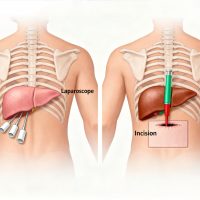Why is healthy food and drink important?
Maintaining a healthy diet is crucial for our overall well-being. The food and drink we consume have a direct impact on our physical and mental health. A balanced diet provides the necessary nutrients, vitamins, and minerals that our bodies need to function optimally. Additionally, healthy food and drink choices can help prevent chronic diseases, boost our immune system, and improve our energy levels.
By fueling our bodies with nutritious food and drink, we can enhance our cognitive function, reduce the risk of developing certain health conditions, and maintain a healthy weight. Moreover, consuming a variety of healthy foods can promote a healthy gut microbiome, supporting our digestive system and strengthening our immune system.
The benefits of consuming nutritious food and drink
When we make the conscious choice to incorporate healthy food and drink into our daily routine, we reap numerous benefits. Firstly, a nutrient-rich diet can improve our energy levels and enhance our mood. It provides us with the necessary fuel to carry out our daily activities with vitality and enthusiasm.
A balanced diet consisting of fruits, vegetables, whole grains, lean proteins, and healthy fats can also help maintain a healthy weight. By consuming these wholesome foods, we are less likely to overindulge in processed and unhealthy options. This, in turn, reduces the risk of obesity and related health issues such as diabetes, heart disease, and certain cancers.
Furthermore, a healthy diet rich in antioxidants, vitamins, and minerals can boost our immune system, making us more resilient to illnesses and infections. It can also improve our skin health, strengthen our hair and nails, and promote a youthful appearance.
The impact of unhealthy food on your health
On the flip side, consuming unhealthy food and drink can have detrimental effects on our health. Processed foods, high in added sugars, unhealthy fats, and artificial additives, offer minimal nutritional value and can lead to weight gain, high blood pressure, and an increased risk of chronic diseases.
Regular consumption of fast food, sugary beverages, and snacks can also contribute to an imbalance in our gut microbiome, leading to digestive issues, inflammation, and a weakened immune system. Moreover, these unhealthy choices often provide temporary satisfaction, followed by an energy crash, leaving us feeling tired and sluggish.
It is important to be mindful of the long-term consequences of unhealthy eating habits. By making conscious choices to avoid these foods and opt for healthier alternatives, we can take control of our health and well-being.
Understanding the basics of a healthy diet
A healthy diet is based on consuming a variety of nutrient-dense foods in appropriate portions. It includes a balance of macronutrients (carbohydrates, proteins, and fats) and micronutrients (vitamins and minerals). Incorporating a wide range of colorful fruits and vegetables ensures that we receive a diverse array of essential vitamins and minerals.
Whole grains, such as brown rice, quinoa, and whole wheat bread, provide complex carbohydrates for sustained energy and fiber for digestive health. Lean proteins, such as chicken, fish, tofu, and legumes, are essential for muscle growth and repair. Healthy fats, found in avocados, nuts, and olive oil, support brain function and promote heart health.
It is important to note that a healthy diet is not about strict restrictions or deprivation. Instead, it is about making informed choices and finding a balance that works for you. By listening to your body’s hunger and fullness cues, you can nourish yourself in a way that supports your health and well-being.
The importance of portion control
While choosing nutritious foods is essential, portion control plays a crucial role in maintaining a healthy diet. Even healthy foods can contribute to weight gain if consumed in excessive amounts. It is important to be mindful of our portion sizes to ensure we are meeting our nutritional needs without overeating.
One way to practice portion control is by using smaller plates and bowls, which can create the illusion of a fuller plate. Additionally, taking the time to savor each bite and eating slowly can help us recognize when we are satisfied, preventing us from overeating.
Another helpful strategy is to plan and prepare meals in advance, ensuring that we have appropriate portion sizes readily available. This can prevent us from reaching for unhealthy snacks or indulging in larger portions due to convenience.
By being mindful of our portion sizes, we can maintain a healthy weight, prevent overeating, and ensure that we are providing our bodies with the right amount of nutrients.
How to make healthy food choices when dining out
Maintaining a healthy diet can sometimes be challenging when dining out at restaurants or social gatherings. However, with a few strategies in mind, it is possible to make healthy food choices while still enjoying the experience.
Firstly, it is beneficial to review the menu in advance and look for healthier options. Many restaurants nowadays offer a variety of dishes that cater to different dietary preferences and needs. Look for dishes that include lean proteins, whole grains, and a generous serving of vegetables.
Additionally, opting for grilled, baked, or steamed dishes instead of fried options can significantly reduce the amount of unhealthy fats and calories consumed. Requesting dressings and sauces on the side allows you to control the amount added to your meal.
Furthermore, being mindful of portion sizes when dining out is crucial. Consider sharing a dish with a friend or asking for a to-go box to save leftovers for another meal. This can prevent you from overeating and also provide you with a delicious meal for the next day.
By making conscious choices and being aware of the ingredients and cooking methods used, you can enjoy a meal out while still prioritizing your health.
Healthy food and drink swaps for common unhealthy choices
Making small swaps in our food and drink choices can have a significant impact on our overall health. By replacing unhealthy options with healthier alternatives, we can still satisfy our cravings while nourishing our bodies.
For instance, instead of reaching for sugary sodas or energy drinks, opt for infused water or herbal teas. These choices provide hydration without the added sugars and chemicals found in many commercial beverages.
When it comes to snacking, choosing fresh fruits and vegetables over processed snacks can provide essential vitamins, minerals, and fiber. Additionally, swapping out refined grains for whole grain options, such as whole wheat bread or brown rice, can increase the nutritional value of our meals.
In terms of cooking oils, replacing unhealthy options like vegetable oil or margarine with healthier alternatives like olive oil or coconut oil can improve the nutritional profile of our meals.
By being mindful of the ingredients we use in our cooking and making simple swaps, we can transform our favorite dishes into healthier versions that still taste delicious.
Incorporating superfoods into your diet
Superfoods are nutrient-dense foods that are particularly beneficial for our health. They are packed with vitamins, minerals, antioxidants, and other beneficial compounds that can provide a wide range of health benefits.
Incorporating superfoods into our diet can boost our overall well-being and support various bodily functions. For example, blueberries are rich in antioxidants that can protect against cell damage and improve brain health. Leafy greens like spinach and kale provide an abundance of vitamins and minerals, supporting our immune system and promoting healthy digestion.
Other superfoods include salmon, which is an excellent source of omega-3 fatty acids for heart health, and chia seeds, which are rich in fiber and can aid in digestion. Quinoa, a complete protein source, and turmeric, with its anti-inflammatory properties, are also considered superfoods.
By adding these nutrient powerhouses to our meals, we can maximize the nutritional value of our diet and enhance our well-being.
Hydration and the importance of drinking enough water
Staying hydrated is essential for our body’s optimal functioning. Water is involved in numerous bodily processes, including digestion, nutrient absorption, temperature regulation, and waste removal. It is crucial to drink enough water throughout the day to maintain proper hydration.
When we are dehydrated, our energy levels decrease, and we may experience symptoms such as headaches, dizziness, and fatigue. Proper hydration is also vital for healthy skin, as it helps maintain elasticity and moisture.
The amount of water each person needs may vary based on factors such as age, activity level, and climate. However, a general guideline is to aim for at least eight glasses (64 ounces) of water per day. This can be achieved by carrying a reusable water bottle with you, setting reminders to drink water throughout the day, and consuming water-rich foods such as fruits and vegetables.
By prioritizing hydration and making an effort to drink enough water daily, we can support our overall health and well-being.
Healthy food and drink recipes to try
Incorporating healthy recipes into our meal planning can make maintaining a healthy diet more enjoyable and sustainable. Here are a few delicious and nutritious recipes to try:
Breakfast:
- Overnight oats with mixed berries and almond butter
- Spinach and feta omelet with whole wheat toast
- Chia seed pudding with fresh fruit and nuts
Lunch:
- Quinoa salad with roasted vegetables and lemon-tahini dressing
- Grilled chicken salad with mixed greens, avocado, and balsamic vinaigrette
- Greek yogurt chickpea salad wrap with cucumber and tomato
Dinner:
- Baked salmon with quinoa pilaf and steamed broccoli
- Lentil curry with brown rice and roasted cauliflower
- Grilled tofu stir-fry with mixed vegetables and ginger-soy sauce
Snacks:
- Greek yogurt with fresh berries and a sprinkle of granola
- Apple slices with almond butter
- Carrot sticks with hummus
By incorporating these recipes into your meal plan, you can enjoy a variety of delicious and nutritious meals while maintaining a healthy diet.
Tips for maintaining a healthy diet in social situations
Maintaining a healthy diet while attending social events or gatherings can be challenging. However, with a few strategies in mind, it is possible to make mindful choices while still enjoying yourself.
Firstly, it can be helpful to eat a balanced meal or snack before attending the event. This can prevent you from arriving hungry and overindulging in unhealthy options.
When faced with a buffet or a variety of food options, take a moment to assess the available choices before making your selection. Opt for lean protein sources, vegetables, and whole grains whenever possible. Be mindful of portion sizes and listen to your body’s hunger and fullness cues.
Additionally, it can be helpful to keep a glass of water or a non-alcoholic beverage in hand. This can prevent mindless snacking and keep you hydrated throughout the event.
Remember that it is okay to indulge in moderation. If there is a particular dish or dessert that you really want to try, go ahead and enjoy it. The key is to savor the taste and be mindful of your overall intake.
By being mindful of your choices, planning ahead, and finding a balance that works for you, you can maintain a healthy diet while still enjoying social occasions.
The role of exercise in a healthy lifestyle
A healthy diet goes hand in hand with regular physical activity. Exercise is essential for maintaining a healthy weight, building muscle strength, and promoting cardiovascular health.
Engaging in regular exercise can also improve our mood, reduce stress levels, and enhance our overall well-being. It can increase our energy levels and improve our sleep quality, leading to a more productive and fulfilling life.
Finding an exercise routine that you enjoy and can stick to is crucial. Whether it’s going for a brisk walk, practicing yoga, or participating in team sports, finding activities that you look forward to can make exercise a more enjoyable part of your daily routine.
It is recommended to aim for at least 150 minutes of moderate-intensity exercise or 75 minutes of vigorous-intensity exercise per week. This can include activities such as brisk walking, cycling, swimming, or strength training.
Remember to listen to your body and start at a pace that feels comfortable for you. Gradually increase the intensity and duration of your workouts as you build strength and endurance.
By incorporating regular exercise into your lifestyle, you can enhance the benefits of a healthy diet and improve your overall well-being.
Resources for further information on healthy food and drink
For more information and resources on healthy food and drink, consider reaching out to BIMC Nusa Dua. Their team of professionals can provide valuable guidance and support in your journey towards a healthier lifestyle.
Additionally, there are numerous reputable sources of information available online and through books. Some recommended resources include:
- The Academy of Nutrition and Dietetics
- The World Health Organization
- The National Institutes of Health
- The American Heart Association
- The Mayo Clinic
By utilizing these resources, you can stay informed and make well-informed choices regarding your diet and nutrition.
Conclusion
In conclusion, prioritizing healthy food and drink choices is essential for our overall well-being. By consuming nutritious foods, we can reap a multitude of benefits, including increased energy levels, improved mood, and reduced risk of chronic diseases.
Understanding the basics of a healthy diet, practicing portion control, and making mindful choices when dining out are key strategies for maintaining a healthy lifestyle. Additionally, incorporating superfoods, staying hydrated, and trying out new recipes can add variety and nutritional value to your meals.
Remember that maintaining a healthy diet is a journey, and it is important to find a balance that works for you. By combining a nutritious diet with regular exercise, you can enhance your overall well-being and lead a healthier and more fulfilling life.
For more information on healthy food and drink, please call BIMC Nusa Dua: +62 361 3000 911 +62 811 3896 113. They can provide valuable guidance and support in your journey towards a healthier lifestyle.











